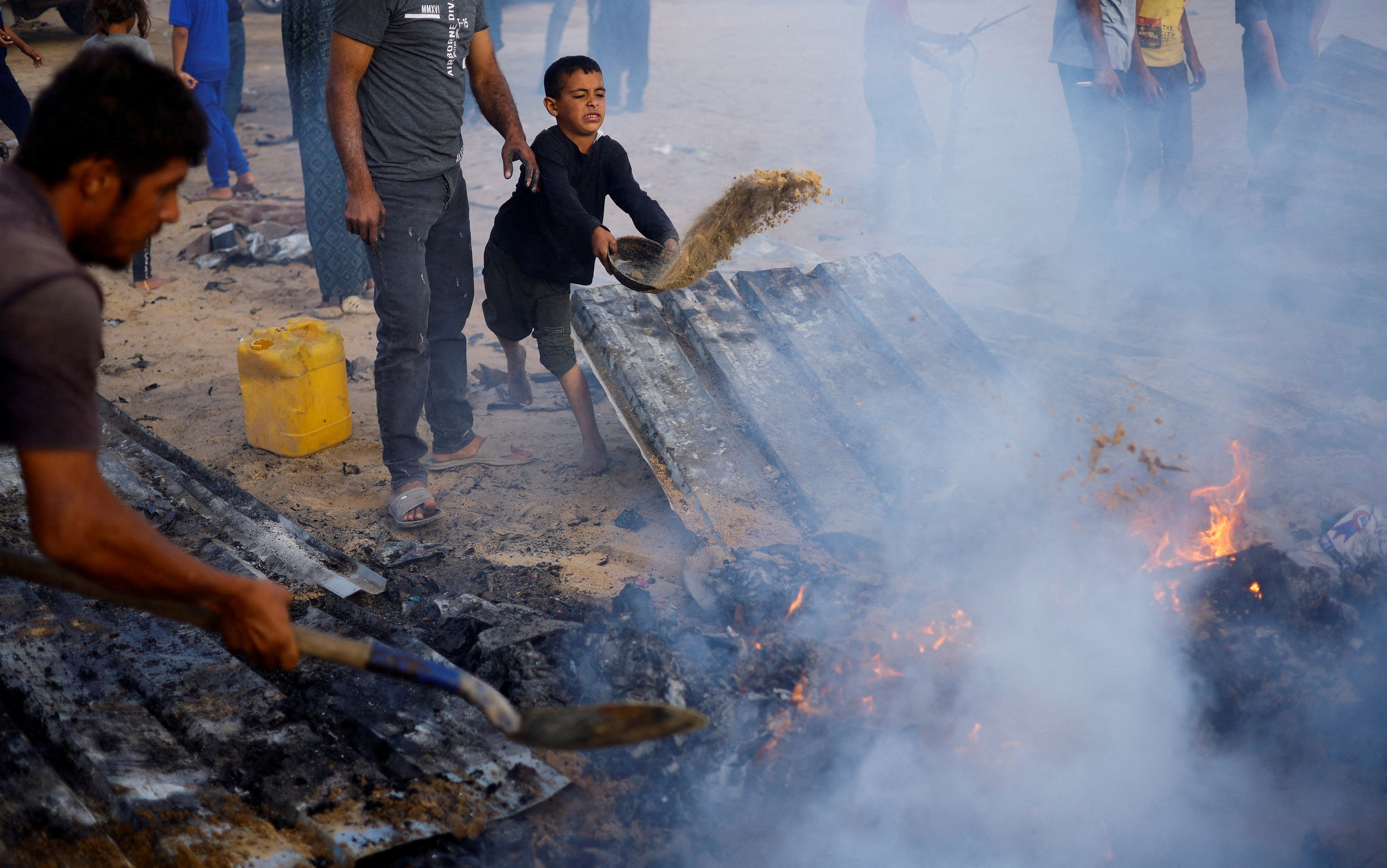Netanyahu’s ‘tragic mistake’ in Rafah is an atrocity too far
In using battlefield weapons to eliminate a terrorist threat, the Israeli prime minister has exposed the fatal flaw in his war on Hamas, says Sean O’Grady


Well, at least he didn’t call them “terrorists”. But Benjamin Netanyahu’s description of the reported 50 refugees – mostly women and children – basically burned to death in an Israeli airstrike as a “tragic mishap” is an equally callous dishonouring of the innocent dead.
If language is there to convey meaning, then we can all see what sentiments lie behind that prosaic phrase.
The prime minister of Israel, even if he wishes to be seen by his country, its enemies and the world as one of the new breed of global hard men, should not speak in this way. It’s an unusually horrible way to die – but many others, indeed some 36,000, have perished in Gaza in pitiful circumstances since Netanyahu launched his disastrous war almost eight months ago.
How many will be dead, crippled, orphaned, starved and traumatised by the time he’s finished? It doesn’t seem to be a subject of great concern to him, even if some of those will be hostages. It seems very obvious — from words and deeds — that Palestinian lives don’t matter to Netanyahu (not that there’s even been much doubt). To see the images of those tents on fire is to witness nothing less than a war crime.
The usual line, repeated again and again, is that Israel takes “every precaution possible” to protect civilians caught up in the fighting in Gaza, and the Israel Defense Forces use their “best efforts not to harm those uninvolved” in the conflict. It is another version of “collateral damage”, of “bad things happen in war”.
The West, when it objects, is reminded of what was perpetrated in Hiroshima and Dresden during past battles with evil. To which the answer must be that, even if those murderous actions were justified, it does not mean that what he has ordered is also justified or inevitable.
The fact is that after Hamas committed its deliberately provocative atrocities on 7 October, Israel has been fighting an unjust war with the wrong weapons – and it has played straight into the hands of Hamas.
Huge casualties were guaranteed by a combination of cutting off aid, water and medicines, and by continuous aerial bombardment such that half of all the buildings and almost all infrastructure have been destroyed. But the rubble is just fine for the guerrillas, and Israeli tanks and shells cannot penetrate all the terrorists’ hideouts. Hamas doesn’t care about Palestinian casualties, and is impervious to domestic pressure; indeed, some Palestinians may see Hamas as their only defenders in a world that has abandoned them. Can anyone doubt that Israel has created fresh battalions of young Gazans ready to avenge their own dead?
Now Netanyahu is caught in a trap of his own making – trying to use massive force of battlefield weapons to eliminate a terrorist threat. It plainly has not worked. They call it asymmetrical warfare, and it has defeated every great power in the world.
If Netanyahu’s strategy had worked, the International Criminal Court would not be preparing warrants for the arrest of Hamas commanders, still at large even now. Levelling Rafah is a crude and ineffective way to assassinate them or, even less likely, bring them to justice for their war crimes.
All that can be said about the immediate future is that the war will not end soon, perhaps not even when Rafah is flattened. When there is nothing left to bomb and nowhere for the Gazans to shelter, this war will not be over, but only through a first phase.
Realistically, there is nothing the UN, the international courts, Europe or even the US can – or will – do to restrain Netanyahu. Israel is not going to face anything more severe than a slight delay in the supply of big American-made bombs and the public displeasure of the president and the secretary of state. He holds the international courts in proud contempt. Lord Cameron doesn’t impress him much. He won’t have lost much sleep over Ireland, Norway and Spain recognising Palestinian statehood. Nor will he worry too much about the outcome of Tuesday’s emergency UN Security Council meeting today to discuss the bombing.
The fundamentals remain the same. Israel is not going to suffer an arms embargo because the US and Germany, the major suppliers, will never impose one, and Netanyahu knows it (and he knows too he can rely on Donald Trump, if fortune turns his way). Netanyahu has enough stocks of arms and indirect ways to acquire new kit to carry on with the war. It doesn’t take much in the way of munitions to turn a village or a hospital into dust.
An American president once said of its own merciless and unwinnable war in southeast Asia that “North Vietnam cannot defeat America – only Americans can do that.” In a sense, he was right, because it was, in the end, only popular political pressure at home that ended the Vietnam war half a century ago, and brought the trips and most of the US prisoners of war – effectively hostages – home.
The same is true of Israel. At some point the Israeli people and their representatives in the Knesset and in the cabinet will have to stop Netanyahu from dragging their country into what one of their human rights organisations calls “a moral abyss”, and leaving it more insecure than ever in its history, increasingly friendless in a hostile, unstable region.
In the meantime, we wait – and the Palestinians suffer.






Join our commenting forum
Join thought-provoking conversations, follow other Independent readers and see their replies
Comments